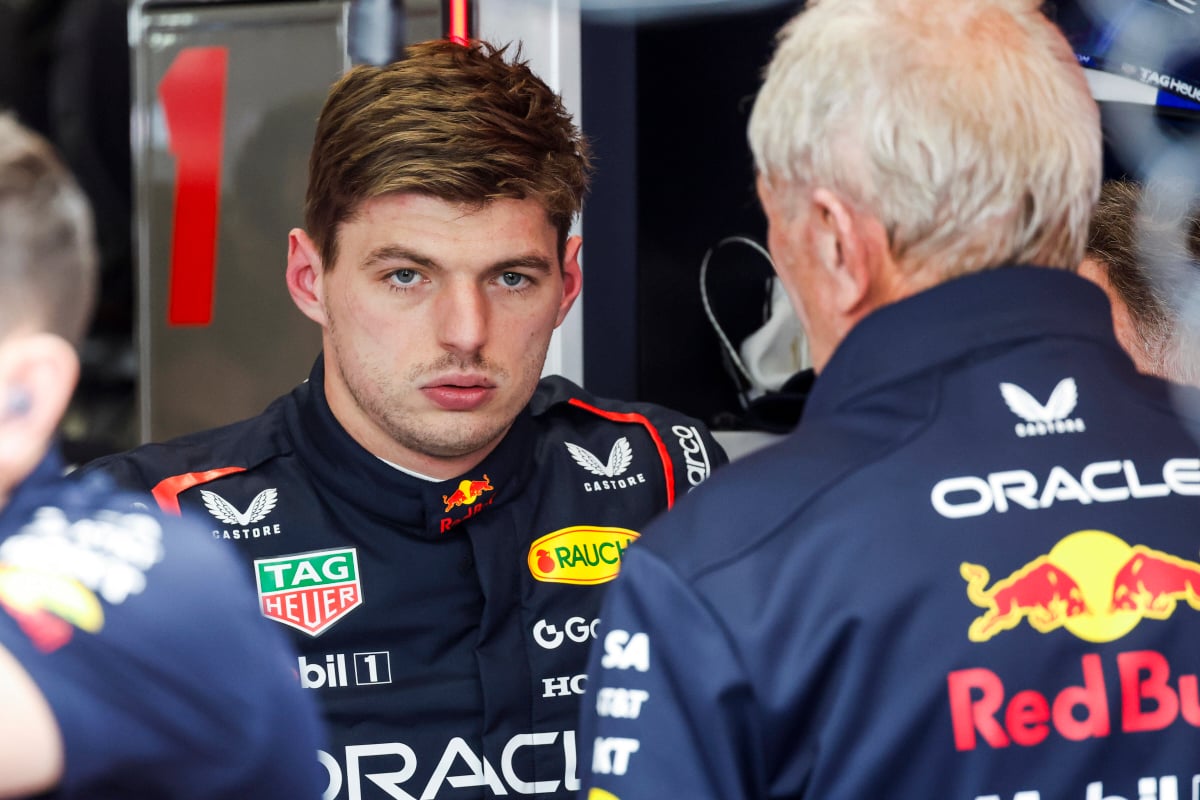Red Bull Chief Helmut Marko Makes Damning Admission About Max Verstappen’s F… read more
In what marks a seismic shift in the Formula 1 landscape, Red Bull advisor Helmut Marko has made a candid admission regarding the waning dominance of Max Verstappen and the Red Bull Racing team. The once untouchable pairing that ruled the grid with an iron grip for four consecutive seasons now finds itself watching the 2025 championship battle unfold from the sidelines. As McLaren’s young stars, Lando Norris and Oscar Piastri, turn the season into a two-horse race, Marko’s brutally honest assessment underscores the changing of the guard in F1’s competitive hierarchy.
Max Verstappen, who has secured the last four F1 Drivers’ Championships with clinical brilliance and unmatched pace, appears to be in the unfamiliar role of an underdog in 2025. Twelve races into the season, the Dutchman finds himself 69 points adrift of McLaren’s Oscar Piastri, with Lando Norris hot on his teammate’s heels. While technically not out of contention, the uphill battle makes a record-equalling fifth consecutive title seem all but out of reach. “The championship is still over,” Marko told Austrian outlet oe24. “It’s now only between Norris and Piastri, with Norris making an impressive comeback with two sensational races.”
That kind of statement—direct, unfiltered, and laced with resignation—stands in stark contrast to the confident tone that once surrounded Red Bull. It speaks volumes not only about the current state of affairs in the team but also about the potential direction Verstappen’s career might take in the near future. With Red Bull currently languishing in fourth place in the Constructors’ standings, Marko has previously acknowledged that the team is unlikely to mount a recovery in 2025, effectively throwing in the towel halfway through the season.
This downturn in fortunes comes in the wake of massive internal upheaval at Red Bull. The team is still reeling from the sudden and dramatic sacking of longtime team principal Christian Horner. Leadership instability has been compounded by a new technical direction that includes the development of Red Bull’s own power units in partnership with Ford, set to be introduced in 2026. That change, while ambitious, adds further uncertainty to a team already struggling to adapt to its competition’s newfound dominance.
Naturally, this has led to speculation over Max Verstappen’s future. Though the Dutch driver’s contract with Red Bull runs through 2028, rumors persist about the existence of exit clauses that could facilitate an earlier departure—particularly if the team’s competitiveness continues to nosedive. The strongest link has been with Mercedes, a team currently in transition but actively planning its long-term future. Team principal Toto Wolff has confirmed that discussions have taken place with Verstappen, and current Mercedes driver George Russell has hinted at concerns over his place in the team, suggesting that serious moves are underway behind closed doors.
For Verstappen, who turns 28 later this year, the next chapter of his career could be defined by decisions made in the next 12 to 18 months. He remains one of the sport’s most talented and marketable drivers, and any team would benefit immensely from his presence. However, whether he chooses to endure Red Bull’s transitional phase or jump ship to a rival team like Mercedes will depend heavily on the trajectory of the team’s performance and leadership stability. At this point, neither are particularly reassuring.
Meanwhile, McLaren has emerged as the sport’s new powerhouse. With a rejuvenated Lando Norris and a rapidly maturing Oscar Piastri at the helm, the British team has claimed nine victories out of the first 12 races in 2025, leaving their rivals scrambling. This dominant run has left no room for Verstappen, who has had to settle for sporadic podiums and a handful of victories—far from the clean sweeps of previous seasons. McLaren’s rise is not just a blip; it’s a reshaping of the pecking order, and Red Bull, at least for now, is no longer at the top.
What makes Marko’s admission particularly striking is that it strips away any illusion of competitiveness in the current season. It is not often that senior figures at top teams concede defeat so publicly and so early. But this honesty may be a necessary step for Red Bull as they recalibrate and focus on the future—one that is filled with unknowns, both technical and strategic.
Despite all the speculation, Verstappen himself has remained tight-lipped about his long-term plans. Publicly, neither he nor his camp has indicated a desire to leave Red Bull ahead of the 2026 regulation overhaul. However, in a sport as politically and technically volatile as Formula 1, silence can be as telling as a statement. Behind the scenes, strategic moves may already be in motion.
For fans, the decline of Red Bull-Verstappen dominance is bittersweet. On one hand, it brings a more competitive and unpredictable championship; on the other, it signals the end of an era that has defined modern F1. Whether Verstappen can engineer a return to the top with Red Bull, or whether he’ll need a change of scenery to do so, remains one of the most compelling storylines in the sport today.
In any case, Helmut Marko’s stark comments make one thing abundantly clear: the days of Red Bull and Verstappen walking away with titles appear to be over, at least for now. The spotlight has shifted, the competition has caught up, and the once-unbreakable dominance has cracked—ushering in a new phase in the ever-evolving world of Formula 1.




